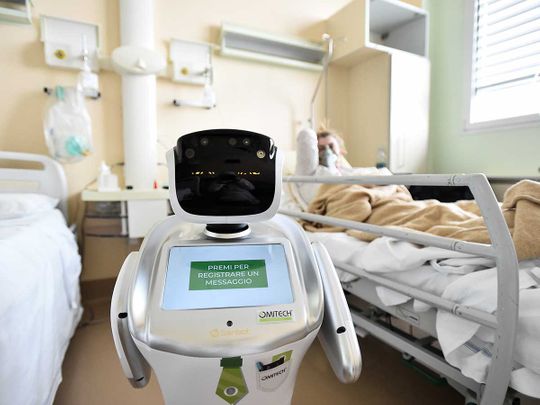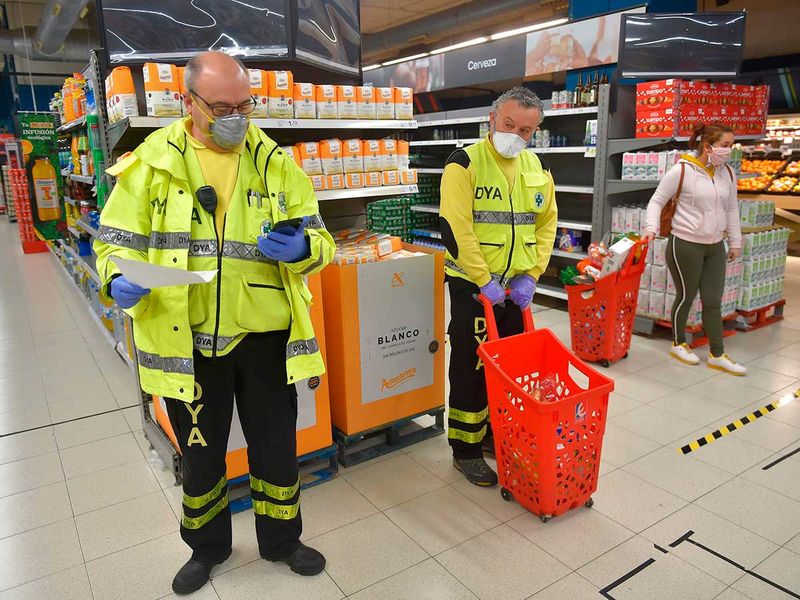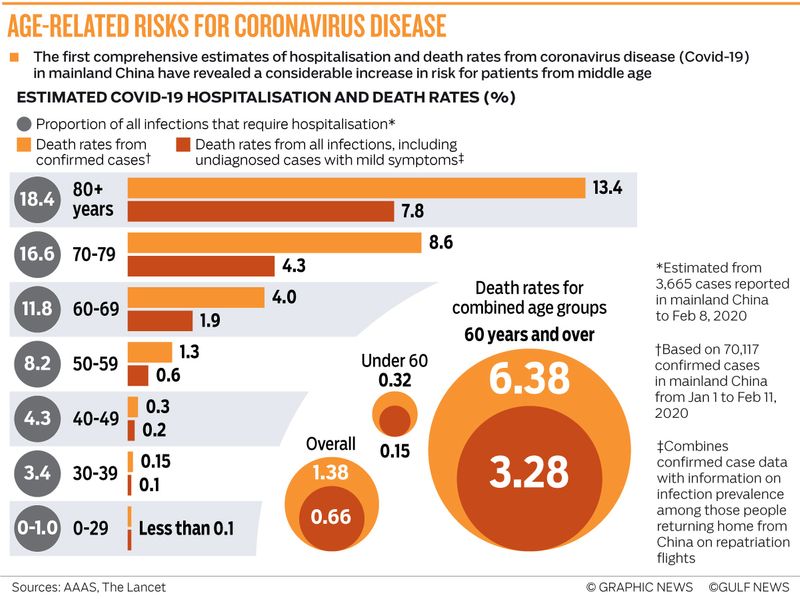
Madrid: The coronavirus pandemic has claimed more than 30,000 lives in Europe alone, a global tally showed Wednesday, in what the head of the United Nations has described as humanity’s worst crisis since World War II.
Italy and Spain bore the brunt of the crisis, accounting for three in every four deaths on the continent, as the grim tally hit another milestone even though half of the planet’s population is already under some form of lockdown in a battle to halt contagion.
Spain reported a record 864 deaths in 24 hours, pushing the country’s number of fatalities past 9,000.
The toll is only dwarfed by Italy’s, where the virus has killed nearly 12,500 people.
Since emerging in China in December, COVID-19 has spread across the globe, claiming over 43,000 lives and infecting more than 860,000 people, according to an AFP tally.
President Donald Trump has warned of a “very, very painful two weeks” as the United States registered its deadliest 24 hours of what he called a “plague”.

White House projected there could be 100,000 to 240,000 deaths in the US from the coronavirus pandemic even if current social distancing guidelines are maintained. Public health officials stressed Tuesday that the number could be less if people across the country bear down on keeping their distance from one another.
Danger to peace
In a scramble to halt the contagion, governments have shut schools, most shops, and ordered millions of people to work from home.
Cancellations of key events on the global calendar have swept both the sports and cultural worlds, with the Edinburgh arts festival the latest to be scrapped.
For UN Secretary-General Antonio Guterres, the extraordinary upheaval spurred by the virus presents a real danger to the relative peace the world has seen over the last few decades.

The disease “represents a threat to everybody in the world and... an economic impact that will bring a recession that probably has no parallel in the recent past,” he said.
“The combination of the two facts and the risk that it contributes to enhanced instability, enhanced unrest, and enhanced conflict are things that make us believe that this is the most challenging crisis we have faced since the Second World War.”
Economic desperation
With most business activity grinding to a halt for an undetermined period of time, scenes of economic desperation and unrest were emerging across the globe.
In Italy, queues were lengthening at soup kitchens while some supermarkets were reportedly pillaged.

Half a million more people now need help to afford meals, Italy’s biggest union for the agriculture sector Coldiretti said, adding to the 2.7 million already in need last year.
“Usually we serve 152,525 people. But now we’ve 70,000 more requests,” confirmed Roberto Tuorto, who runs a food aid association.
It was crucial to “ensure that the economic crisis unleashed by the virus doesn’t become a security crisis,” he warned.
The economic pain of lockdowns is especially acute in poorer nations.
In Tunisia several hundred protested a week-old lockdown that has disproportionately hit the poor.
“Never mind coronavirus, we’re going to die anyway! Let us work!” shouted one protester in the demonstration on the outskirts of the capital Tunis.
Africa’s biggest city Lagos was just into its second full day of lockdown on Wednesday - but with some of the world’s biggest slums, home to millions who live hand-to-mouth, containment will be a challenge.
Sharpening tone
Wary of a collapse of the world’s economy, the globe’s leading central bankers have pumped billions of liquidity into the system.
Last week, G20 leaders in turn said they were injecting $5 trillion into the global economy to head off a feared deep recession.
But with the spread of the virus far from abating, stock markets fell again in Asia and Europe on Wednesday.
In the European Union, the terms of a rescue plan threatened to divide the bloc.
Worst-hit Italy and Spain are leading a push for a shared debt instrument - dubbed “coronabonds”, but talk of shared debt is a red line for Germany and other northern countries.
The tone sharpened this week, with some Italian politicians even taking out an advertisement in a major German newspaper to remind Europe’s biggest economy of WWII debts to jolt it into action.
Asymptomatic cases
The economic cost of the crisis was still piling up as lockdowns remain at the forefront of official disease-stopping arsenals - a strategy increasingly borne out by science.
Researchers said China’s decision to shutter Wuhan, ground zero for the pandemic, may have prevented hundreds of thousands of new cases.
“Our analysis suggests that without the Wuhan travel ban and the national emergency response there would have been more than 700,000 confirmed COVID-19 cases outside of Wuhan” by mid February, said Oxford University’s Christopher Dye.
At the same time, focus is now turning to how asymptomatic cases may be fuelling the spread.
China on Wednesday said it has more than 1,300 asymptomatic coronavirus cases, the first time it has released such data following public concern over people who have tested positive but are not showing symptoms.
Experts agree that asymptomatic patients are likely to be infectious, but it remains unknown how responsible they are for spreading the deadly virus.
Chinese respiratory expert Zhong Nanshan said in a state media interview last week that asymptomatic carriers could potentially infect “3 to 3.5 people each”.
Germany and France were also ramping up testing of the population to establish how many already have immunity.
Painful choices
For now, the focus of the health sector in the hardest hit countries remains the scramble for available facilities to treat patients.
Emergency hospitals are popping up in event spaces while distressed medical staff make grim decisions about how to distribute limited protective gear, beds and life-saving respirators.
In scenes unimaginable in peacetime, around a dozen white tents were erected to serve as a field hospital in New York’s Central Park.
But even with the extended capacity, doctors say they are still having to make painful choices.
“If you get a surge of patients coming in, and you only have a limited number of ventilators, you can’t necessarily ventilate patients,” Shamit Patel of the Beth Israel hospital said.
“And then you have to start picking and choosing.”








